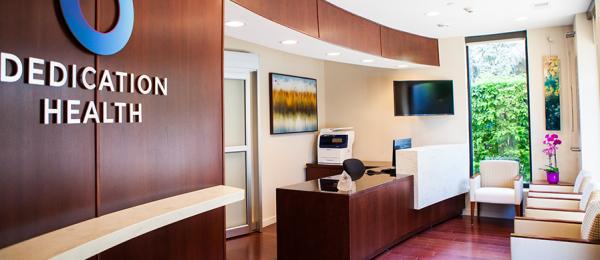The Impact of Occupational Stress and Doctor Burnout on Patient Outcomes & Care
Occupational stress or doctor burnout often leads to poorer patient outcomes, reduced patient satisfaction, and a greater number of medical errors. Concierge medicine seeks to solve this problem.
Occupational stress among physicians, commonly referred to as doctor burnout, has been a significant area of concern for decades. Doctor burnout has devastating consequences on the quality of care they deliver, according to a large-scale systematic review and meta-analysis. These consequences include poorer patient outcomes, reduced patient satisfaction, and a greater number of medical errors. Additionally, occupational stress can result in physicians leaving practice, thus contributing to the primary care physician shortage that has also had a major negative impact on healthcare in the United States.
A study published in the journal JAMA Internal Medicine looks at 47 papers which together analyse the responses of 43,000 doctors. It finds that doctors with burnout are twice as likely to make mistakes, such as incorrect diagnoses or wrong prescriptions. Preventable harmful medical errors occur in one in 20 patients according to a recent GMC report. Doctor burnout also doubles the likelihood of lower professional standards, such as not following NICE guidelines or malpractice.
Similar studies have indicated that common drivers of occupational stress and physician burnout include the following: paperwork; feeling undervalued; frustrations with referral networks; difficult patients; medicolegal issues; and challenges in finding work-life balance. Long hours, frequent call, frustration with administrative burden, and reimbursement issues strongly affect physicians. Many of these issues are largely due to a major flaw in the current healthcare model. Where doctor offices feel forced to operate like assembly lines in order to serve the large number of patients they need to afford the cost of running of the medical practice.
Patient counts are climbing, administrative duties are growing, and complex computer systems used for everything from insurance billing to scheduling are eating away at what little time physicians have to provide care for their patients. The result? The average has about 2,500 and the doctor spends 27% of their time face-to-face with them, literally only a few minutes with each person.
While there may be no overall solution to the physician shortage, yet it’s clear that practices need to see fewer patients and give the physicians more time with the patients they have in order to reduce or maybe even eliminate doctor burnout and improve quality of care as well as patient outcomes. Few models accomplish this, but one stands out above the rest: concierge medicine. Concierge physicians have only a few hundred patients, they tend to be happier, and provide better care, as demonstrated by better patient outcomes and improved patient satisfaction.
For patients who feel like their physician isn’t spending enough time with them, doesn’t value them, or isn’t focused on their overall well being, a concierge medical practice could be a better alternative. Dedication Health, Chicago's premier concierge medical practice, keeps their patient count low to provide better, more personalized care. Concierge doctors eliminate the frustrations and constraints of traditional practices, and offer benefits such as same-day doctor appointments or urgent care, 24-access to their concierge physician, and an unrestricted amount of face-to-face time with their physician. This heightened level of attentive care leads to better patient outcomes, higher patient satisfaction, and reduced occupational stress or doctor burnout. Dedication Health is located in Chicago's North Shore.




